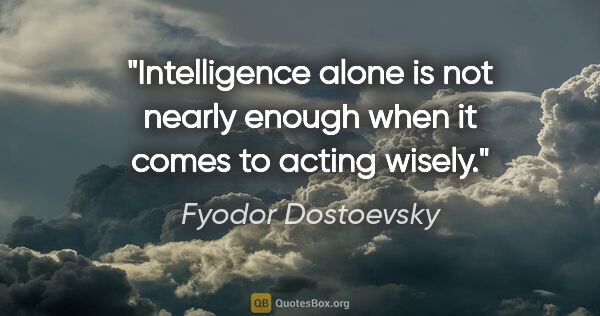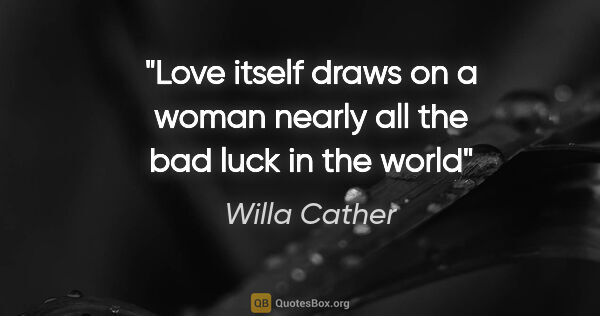Near Quotes (page 14)
By the time it has gotten dressed, it has become he; has become already more or less George — though still not the whole George they demand and are prepared to recognize. Those who call him on the phone at this hour of the morning would be bewildered, maybe even scared, if they could realize what this three-quarters-human thing is what they are talking to. But, of course, they never could—its voice's mimicry of their George is nearly perfect.
Christopher Isherwood
I had been hungry all the years-My noon had come, to dine-I, trembling, drew the table near. And touched the curious wine. 'Twas this on tables I had seen. When turning, hungry, lone, I looked in windows, for the wealth. I could not hope to own. I did not know the ample bread,'Twas so unlike the crumb. The birds and I had often shared. In Nature's diningroom. The plenty hurt me, 'twas so new,--Myself felt ill and odd, As berry of a mountain bush. Transplanted to the road. Nor was I hungry; so...
Emily Dickinson
That's who Jesus Christ is. He became the final Priest and the final Sacrifice. Sinless, he did not offer sacrifices for himself. Immortal, he never has to be replaced. Human, he could bear human sins. Therefore he did not offer sacrifices for himself; he offered himself as the final sacrifice. There will never be the need for another. There is one mediator between us and God. One priest. We need no other. Oh, how happy are those who draw near to God through Christ alone.
John Piper
...he could feel the earth beneath, all the deep stone of it, cool and hard near the surface of the earth, but hotter and softer as you went deep, until it flowed like honey, a vast sweet fiery ocean of molten rock a thousand times more voluminous and ten thousand times heavier than the sea. It felt to him as if it were his own blood, and his heart pumped it.
Orson Scott Card
Only part of us is sane: only part of us loves pleasure and the longer day of happiness, wants to live to our nineties and die in peace, in a house that we built, that shall shelter those who come after us. The other half of us is nearly mad. It prefers the disagreeable to the agreeable, loves pain and its darker night despair, and wants to die in a catastrophe that will set back life to its beginnings and leave nothing of our house save its blackened foundations.
Rebecca West
Paris is the city in which one loves to live. Sometimes I think this is because it is the only city in the world where you can step out of a railway station—the Gare D'Orsay—and see, simultaneously, the chief enchantments: the Seine with its bridges and bookstalls, the Louvre, Notre Dame, the Tuileries Gardens, the Place de la Concorde, the beginning of the Champs Elysees—nearly everything except the Luxembourg Gardens and the Palais Royal. But what other city offers as much as you leave a...
Margaret Anderson
You ever wonder what a Martian might think if he happened to land near an emergency room? He’d see an ambulance whizzing in and everybody running out to meet it, tearing the doors open, grabbing up the stretcher, scurrying along with it. ‘Why,’ he’d say, ‘what a helpful planet, what kind and helpful creatures.’ He’d never guess we’re not always that way; that we had to, oh, put aside our natural selves to do it. ‘What a helpful race of beings,’ a Martian would say. Don’t you think so?
Anne Tyler
That Hegelian dialectics should provide a wonderful instrument for always being right, because they permit the interpretations of all defeats as the beginning of victory, is obvious. One of the most beautiful examples of this kind of sophistry occurred after 1933 when the German Communists for nearly two years refused to recognize that Hitler's victory had been a defeat for the German Communist Party.
Hannah Arendt
I wander thro' each charter'd street, Near where the charter'd Thames does flow, And mark in every face I meet Marks of weakness, marks of woe. In every cry of every Man, In every Infant's cry of fear, In every voice, in every ban, The mind-forg'd manacles I hear. How the Chimney-sweeper's cry Every black'ning Church appalls; And the hapless Soldier's sigh Runs in blood down Palace walls. But most thro' midnight streets I hear How the youthful Harlot's curse Blasts the new born Infant's tear,...
William Blake
I must passed the crest a while ago. And now I am going down. Strange to have crossed the crest and not to know, But the brambles were always catching the hem of my gown. And the morning I thought how proud I should be. To stand there straight as a queen, Wrapped in the wind and the sun with the world under me. But the air was dull; there was little I could have seen. It was nearly level along the beaten track. And the brambles caught in my gown. But it's no use now to think of turning back,...
Sara Teasdale

